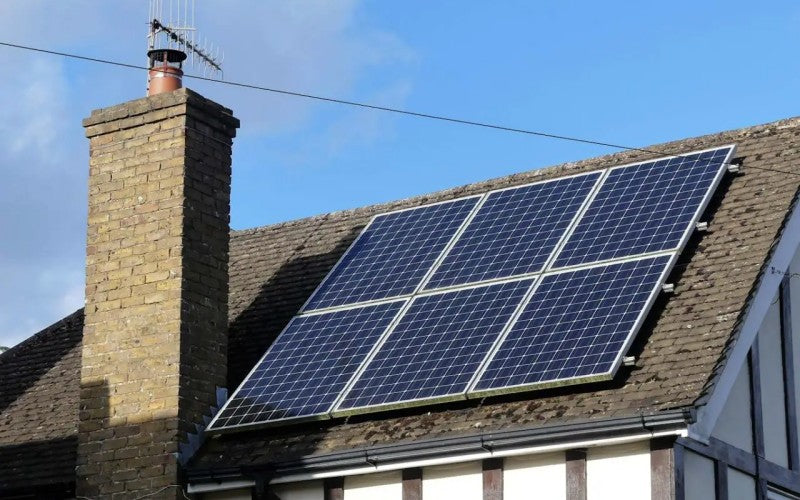
If you're considering adopting renewable energy and exploring the possibility of going solar, you're in the right place! Solar panels have emerged as an excellent alternative to traditional electricity sources, promising both environmental benefits and long-term cost savings. But before you make the leap into the world of solar energy, you might be wondering: "How much does a solar panel cost?" Fear not, as we embark on this solar-powered journey, we'll unravel the mysteries behind solar panel pricing and help you become a savvy solar shopper.
Understanding the Factors that Influence Solar Panel Costs
When it comes to solar panel prices, it's essential to comprehend the factors that contribute to their overall cost. Several elements play a role in determining the price of a solar panel system:
1. Type of Solar Panels: There are different types of solar panels available, such as monocrystalline, polycrystalline, and thin-film panels. Monocrystalline panels, known for their high efficiency, tend to be more expensive than polycrystalline and thin-film panels.
2. System Size: The size of the solar panel system you need depends on your electricity consumption and available roof space. Larger systems generate more power but come at a higher upfront cost.
3. Brand and Quality: Well-known brands with a proven track record often charge a premium for their reliability and performance. However, there are also reputable budget-friendly options available.
4. Installation Costs: The cost of solar panels includes not only the hardware but also the labor required for installation. Complex installations or hard-to-reach roofs may incur additional expenses.
5. Incentives and Rebates: Solar incentives and rebates offered by governments and local authorities can significantly reduce the overall cost of going solar.
6. Warranties and Maintenance: Panels with extended warranties and comprehensive maintenance packages might cost more upfront but can offer peace of mind in the long run.
Breaking Down the Costs
Now that we have a better understanding of the factors influencing solar panel prices, let's delve into the cost breakdown to get a clearer picture:
1. Solar Panel Cost (Per Watt): Solar panels are typically priced per watt, and the cost varies depending on the type and brand. On average, you can expect to pay anywhere from $2.50 to $4.00 per watt. For example, a 300-watt solar panel at $3.00 per watt would cost $900.
2. Installation Charges: The cost of installation can fluctuate based on your location and the complexity of the installation process. On average, installation costs can range from $2,000 to $5,000.
3. Inverter Costs: Solar inverters convert the DC power generated by solar panels into AC power for use in your home. Prices for inverters vary depending on the type and capacity, and you can expect to spend around $1,000 to $2,000.
4. Additional Equipment: Depending on your energy needs and preferences, you might require additional equipment such as batteries for energy storage or solar tracking systems. These can add to the overall cost of your solar panel system.
The Return on Investment (ROI) of Going Solar
While the initial cost of a solar panel system might seem substantial, it's crucial to consider the long-term benefits and the return on investment (ROI) of going solar. Here's why investing in solar panels is a smart financial decision:
1. Energy Savings: Solar panels generate electricity from the sun's rays, which means you'll significantly reduce or eliminate your electricity bills over time. The savings can add up to thousands of dollars in the long run.
2. Tax Incentives and Rebates: Governments and local authorities often offer tax incentives, rebates, or even grants to encourage the adoption of solar energy. These financial incentives can significantly reduce your initial investment, making solar panels more affordable.
3. Increase in Property Value: Solar panels can enhance the value of your property, making it a more attractive option for potential buyers in the future. Studies have shown that homes equipped with solar panels can sell at a premium.
4. Environmental Benefits: By harnessing the power of the sun, you'll reduce your carbon footprint and contribute to a cleaner, greener planet. Going solar is a conscious choice towards a sustainable future.
Conclusion
In conclusion, the cost of a solar panel system depends on various factors such as the type of panels, system size, installation charges, and additional equipment. While the initial investment may seem significant, the long-term benefits and savings outweigh the upfront costs. Solar panels not only offer substantial financial returns through energy savings and incentives but also contribute to a cleaner environment.
As you embark on your solar energy journey, remember to explore different options, compare quotes from multiple providers, and consider the quality and reliability of the solar panels and installation services. It's essential to strike a balance between upfront costs and long-term gains to ensure you get the most out of your solar panel investment.
So, whether you're motivated by reducing your carbon footprint or slashing your electricity bills, going solar is a bright idea that will pay off in more ways than one. Embrace the power of the sun and take the first step towards a brighter, cleaner, and more sustainable future with solar panels!

0 Kommentare